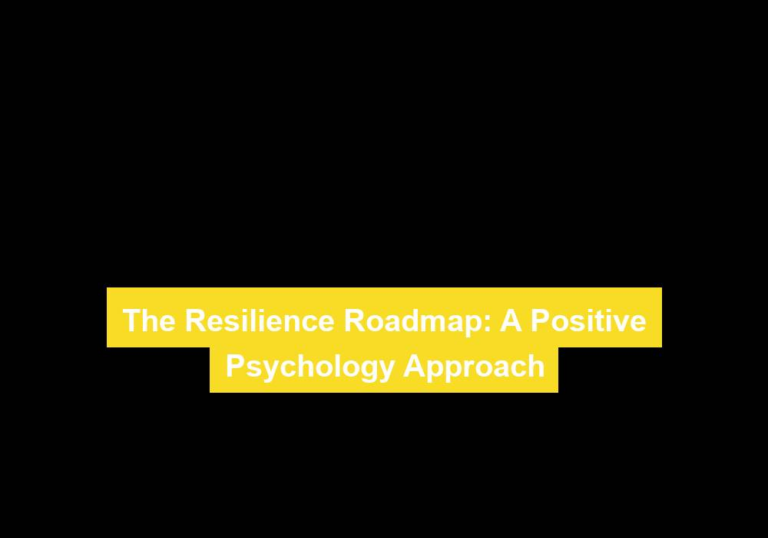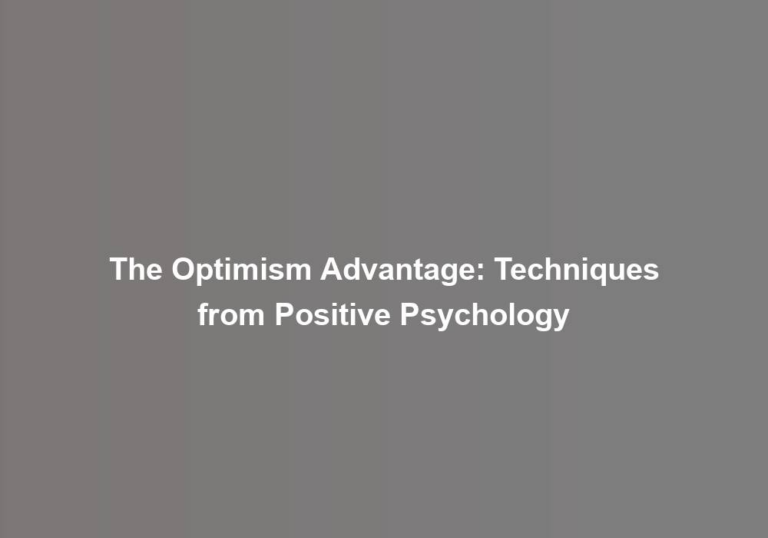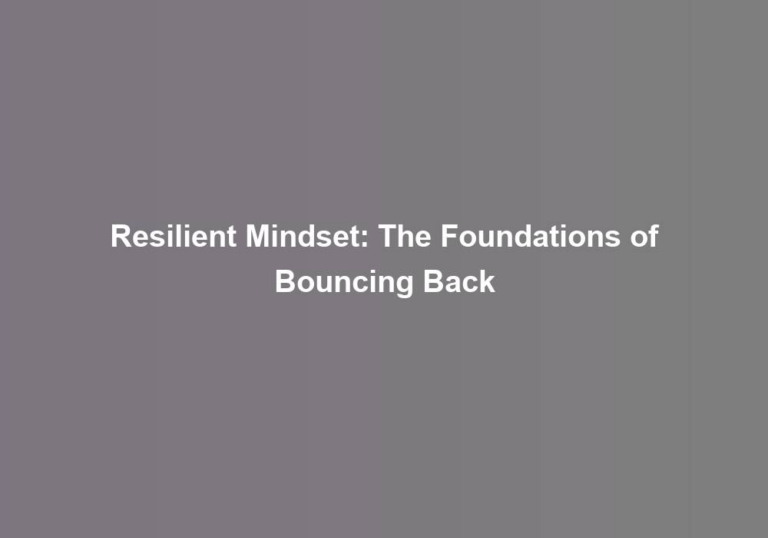Bounce Back: Building Blocks of Resilience
In the face of lifeG??s challenges, itG??s natural to feel overwhelmed at times, yet deep down, you possess an innate ability to overcome adversity. What if you could tap into that strength and bounce back from setbacks with resilience? The key lies in understanding the building blocks of resilience G?? those fundamental traits and practices that enable you to navigate through tough times and emerge even stronger. As you explore the components of resilience, youG??ll uncover practical strategies to enhance your ability to adapt, cope, and thrive in the face of adversity.
Understanding Resilience
To understand resilience, it is essential to recognize the complex interplay of psychological and environmental factors that enable individuals to adapt and thrive in the face of adversity. Building resilience involves developing a resilience mindset, which encompasses a set of attitudes, behaviors, and strategies that can be cultivated and strengthened over time. This mindset is characterized by an optimistic outlook, the ability to regulate emotions, and the capacity to problem-solve in challenging situations.
Resilience is not a fixed trait but rather a dynamic process that can be nurtured and developed. Research has shown that individuals who actively engage in building resilience tend to have better mental and physical health outcomes. They are more likely to view setbacks as temporary and surmountable, rather than insurmountable obstacles. By fostering a resilience mindset, individuals can enhance their ability to cope with stress, bounce back from adversity, and even experience personal growth in the aftermath of difficult experiences.
Furthermore, building resilience is not solely an individual endeavor; it is also influenced by the social and environmental context in which a person is situated. Supportive relationships, access to resources, and a sense of belonging within a community all play crucial roles in fostering resilience. These external factors can provide individuals with the necessary support and encouragement to develop and maintain a resilience mindset.
Cultivating a Growth Mindset
When facing challenges, embracing them with a growth mindset can help you see them as opportunities for learning and development. By approaching setbacks as temporary and surmountable, you can cultivate resilience and bounce back stronger. Research has shown that individuals with a growth mindset are more likely to persevere in the face of adversity and achieve long-term success.
Embracing Challenges
How can you approach challenges with a growth mindset to enhance your resilience and personal development? Embracing challenges with a growth mindset can significantly impact your ability to bounce back from adversity and thrive. Here are four key strategies to help you cultivate a growth mindset and enhance your resilience:
-
View challenges as opportunities: Embrace challenges as chances to learn and grow, rather than insurmountable obstacles. This positive mindset can help you approach difficulties with optimism and determination.
-
Develop a willingness to learn: Be open to new experiences and knowledge. Cultivating a growth mindset involves actively seeking opportunities for personal and professional development.
-
Persist in the face of setbacks: Embrace the idea that setbacks are a natural part of any journey. Overcoming obstacles with resilience and determination can foster personal growth and development.
-
Seek support and feedback: Surround yourself with a supportive network and seek feedback to learn and improve. Embracing challenges with a growth mindset involves recognizing the value of collaboration and constructive criticism.
Learning From Setbacks
Embracing challenges with a growth mindset can equip you with the resilience to not only overcome setbacks but also to learn and grow from them. Overcoming adversity is a crucial aspect of building resilience. When faced with setbacks, itG??s essential to adopt a growth mindset, believing that abilities and intelligence can be developed. This mindset enables you to view challenges as opportunities for growth rather than insurmountable obstacles. Research by psychologist Carol Dweck has shown that individuals with a growth mindset are more likely to persevere in the face of setbacks and ultimately achieve higher levels of success. By approaching setbacks with a willingness to learn and improve, you can develop a deeper understanding of your strengths and weaknesses, ultimately enhancing your resilience and ability to navigate future challenges.
Developing Coping Strategies
To effectively manage and overcome challenges, individuals must actively cultivate and employ coping strategies that are personalized to their unique circumstances and needs. Developing coping strategies is crucial for navigating through difficult times and building resilience. Here are four key strategies to help you effectively cope with adversity:
-
Stress Management: ItG??s essential to recognize the signs of stress and have a toolkit of strategies to manage it. This might involve incorporating mindfulness practices, physical exercise, or engaging in hobbies that bring you joy. By actively managing stress, you can prevent it from becoming overwhelming and negatively impacting your ability to bounce back from setbacks.
-
Emotional Regulation: Understanding and regulating your emotions is a fundamental aspect of coping with challenges. This involves acknowledging your feelings, accepting them without judgment, and finding healthy ways to express and process them. Techniques such as deep breathing, journaling, or talking to a trusted friend or professional can support emotional regulation.
-
Seeking Support: Building a network of supportive relationships is a powerful coping strategy. Surrounding yourself with people who uplift and understand you can provide a sense of belonging and comfort during tough times.
-
Adaptability: Developing the ability to adapt to change and uncertainty is a valuable coping skill. Flexibility in your thinking and approach can help you navigate unexpected challenges with resilience and creativity.
Nurturing Social Connections
Nurturing social connections builds on the foundation of seeking support as a coping strategy, fostering a network of relationships that can provide comfort and strength during challenging times. Building trust is a crucial component of nurturing social connections. Trust forms the basis of strong, meaningful relationships. When you have trust in your social connections, you feel secure in confiding in them and seeking support when you need it. ItG??s essential to cultivate trust by being reliable, honest, and supportive in return.
Fostering empathy within your social connections is equally important. Empathy allows for understanding and compassion, creating a supportive environment where you feel heard and valued. By actively listening to others and showing understanding towards their experiences, you can strengthen your social bonds and create a sense of belonging. Likewise, when you receive empathy from your social connections, you feel validated and supported, which is crucial for resilience.
Research consistently shows that individuals with strong social connections are more resilient in the face of adversity. These connections not only provide emotional support but also offer practical assistance and different perspectives. Having a diverse network of relationships can also expose you to new ideas and ways of coping, further enhancing your resilience.
In nurturing social connections, itG??s important to cultivate trust and foster empathy, as these elements form the bedrock of supportive, resilient relationships.
Embracing Change and Adaptability
When facing challenges, your ability to adapt to change is crucial for building resilience and navigating through adversity. Flexibility and resilience go hand in hand, allowing you to respond effectively to unexpected situations and bounce back from setbacks. Here are four key aspects to consider when it comes to embracing change and adaptability:
-
Mindset Shift: Embracing change starts with a mindset shift. Instead of viewing change as a threat, try to see it as an opportunity for growth and learning. Cultivating a positive and open mindset can help you approach change with resilience and adaptability.
-
Learning Agility: Developing learning agility is essential for adapting to change. This involves being open to new experiences, seeking feedback, and continuously updating your skills and knowledge. By embracing a mindset of continuous learning, you can navigate through uncertainty and adapt to new circumstances more effectively.
-
Building Support Networks: Surrounding yourself with a strong support system can enhance your adaptability. Seeking guidance and encouragement from friends, family, or mentors can provide you with the necessary resources and perspectives to navigate through change with resilience.
-
Self-Reflection and Adaptation: Taking the time for self-reflection allows you to assess your responses to change and identify areas for improvement. By embracing a growth mindset and being open to adaptation, you can develop the resilience needed to thrive in the face of uncertainty.
Practicing Self-Care
You may have heard the phrase G??you canG??t pour from an empty cup,G?? and it holds true when it comes to building resilience. Prioritizing rest and relaxation, as well as nurturing your personal well-being, are crucial aspects of practicing self-care. Research shows that taking time for yourself not only improves your mental and physical health but also equips you to better handle lifeG??s challenges.
Prioritizing Rest and Relaxation
Amidst the demands of modern life, it is crucial to actively prioritize rest and relaxation as part of practicing self-care. Neglecting these essential elements can lead to burnout and decreased resilience. To effectively prioritize rest and relaxation, consider the following:
-
Establish Boundaries: Set clear boundaries to protect your downtime. Learn to say no to additional commitments when you need to recharge.
-
Engage in Relaxation Techniques: Explore various stress management strategies such as meditation, deep breathing exercises, or yoga to calm your mind and body.
-
Quality Sleep: Prioritize a consistent sleep schedule to allow for adequate rest and recovery. Create a comfortable environment conducive to quality sleep.
-
Unplug: Take regular breaks from technology to disconnect and unwind, allowing your mind to rest and rejuvenate.
Nurturing Personal Well-Being
Paying attention to your personal well-being through practicing self-care is a natural extension of prioritizing rest and relaxation in your life. Engaging in stress management techniques, such as mindfulness meditation or physical exercise, can help you navigate lifeG??s challenges more effectively. By actively addressing your stress, you can build resilience and maintain a more positive outlook. Additionally, emotional regulation plays a crucial role in nurturing personal well-being. It involves being aware of your emotions, understanding their triggers, and developing healthy coping mechanisms. This can help you respond to difficult situations in a more balanced and constructive manner. Prioritizing self-care through stress management and emotional regulation empowers you to navigate lifeG??s ups and downs with greater ease and confidence. Remember, taking care of yourself is an essential part of building resilience.
Conclusion
In conclusion, resilience is the key to bouncing back from lifeG??s challenges. By cultivating a growth mindset, developing coping strategies, nurturing social connections, embracing change, and practicing self-care, you can build the necessary building blocks of resilience. Remember, life is not about waiting for the storm to pass, but learning to dance in the rain. So, keep your head up, stay strong, and believe that you have the power to overcome anything that comes your way.







